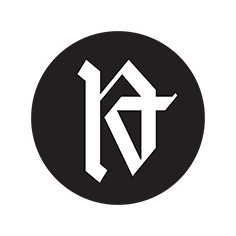Buying your first home can be daunting, with numerous variables and fluctuating trends to consider. This article will provide tips for first-time homebuyers and examine the current trends shaping the Canadian real estate market.
Recently, the Canadian real estate market has been volatile. The Bank of Canada has left the benchmark interest rate at 4.5 percent, which may change if inflation does not slow. First-time homebuyers should take advantage of the current market before rates increase again.
Housing prices are rising due to a tight inventory, resulting in buyers paying more than market value. This trend contributes to the upward pressure on house prices, and upsizing has become a luxury, with mortgage rates close to 7 percent.
While buyers may wonder whether to wait until summer, the market is likely to stay the same. Therefore, it is best to act now before prices rise further. Despite high prices, there are still opportunities to find a great deal on a home by staying informed and being prepared to act quickly.
As a first-time homebuyer in Canada, you should keep ten things in mind:
- To prepare for the home-buying process, it’s essential to have your credit report in order and ensure that it reflects positively on your creditworthiness. Aim for a credit score of 700 or higher, as this can increase your chances of being approved for a mortgage and qualifying for a better interest rate. Before embarking on your home search, take the time to carefully review your credit report and address any errors that could negatively impact your score. Have a recent employment letter ready to show a stable source of income.
- Employment verification letters are essential for securing a mortgage. To qualify for a mortgage, most lenders require borrowers to demonstrate a stable source of income. A recent employment letter can provide evidence of your current job and income stability. Additionally, maintaining a consistent work history can also boost your chances of mortgage approval. Provide identification documents such as a PR card or driver’s license.
- When applying for a mortgage, you will need to provide bank statements to demonstrate that you have a positive bank balance and to provide proof of your down payment. Mortgage lenders typically request bank statements to verify that you have enough funds to cover the down payment and closing costs. It is important to keep your bank statements easily accessible and make sure that you maintain a positive balance for at least three months before applying for a mortgage.
- To verify your identity, you will be required to provide identification documents such as a PR card or driver’s license. It is essential to have these documents ready and ensure they are valid before applying for a mortgage. The lender needs to confirm that you are the person you claim to be.
- A clear understanding of your financial limitations is crucial when buying a home. It’s important to avoid the mistake of overspending on a home and facing financial challenges in the future. Utilize a mortgage affordability calculator to determine how much you can realistically afford to spend on a home. This will help you make a more informed decision and stay within your budget.
- Obtain pre-approval for a mortgage. This process will give you a more precise understanding of how much you can afford to spend on a house. Additionally, it demonstrates to sellers that you are a committed buyer and gives you an advantage over other potential buyers who have not obtained pre-approval. Be prepared for closing costs, which include legal fees and land transfer taxes.
- Choose a real estate agent who understands your needs. The right real estate agent can simplify the home-buying process and save you a lot of time and hassle. They can assist you in locating the ideal home that matches your requirements and budget, bargain with sellers on your behalf, and help you throughout the home-buying journey.
- Consider a home inspection before buying. A thorough inspection of the property is crucial to identify any underlying issues that may not be visible to the naked eye. By conducting a home inspection, you can make an informed decision about whether to proceed with the purchase or negotiate with the seller to address any issues.
- Consider the closing costs. When you’re closing a deal on your new home, you’ll have to pay for additional fees, known as closing costs. These expenses may involve legal fees, land transfer taxes, and other charges. It’s crucial to understand these costs to prepare a suitable budget.
- Prepare for unexpected expenses. Homeownership can come with unforeseen costs, such as repairs, maintenance, property taxes, and other unexpected expenses. It’s crucial to have a plan in place and budget accordingly for these expenses to avoid any financial strain.
In summary, the Canadian real estate market is experiencing volatility, but first-time homebuyers can still find a great deal by staying informed and acting quickly. By keeping the above ten things in mind, you can be well-prepared to navigate the exciting world of real estate.
Ani Imastounian’s Team can be your one-stop shop for all your real estate needs–in-house mortgage and financing options are now available.

